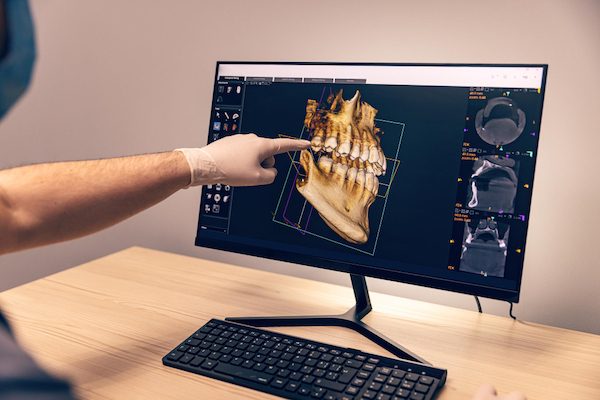Bone Grafting
Everything You Should Know About Bone Grafting

Bone Grafting Campbelltown
Repairing a patient’s jaw’s bone mass involves bone grafting. It is used to compensate for low bone density that may have resulted from an injury, illness, or tooth extraction.
Losing a tooth due to trauma, gum disease, or unexpected tooth extraction is common.
Over time, the jawbone linked with missing teeth may dissolve, leaving it in poor shape. If you need a dental implant, this may be an issue.
A patient with poor or insufficient bone quality is not a good candidate for a dental implant.
A robust bone structure is necessary for a dental implant to be held securely in place.
Why It’s Done
Major bone grafts and dental implants may also be required to repair a deficient jaw brought on by a severe illness, injury, or congenital deformity.
Utilising your bone, which can be obtained from the hip and knee depending on the size needed, your dentist can fix significant flaws.
Rebuilding the bone in the upper jaw’s rear region also involves using bone grafts. When there is bone deterioration between the upper jaw and the sinus, this is required.
Your dentist will use a specific membrane that dissolves behind your gums to perform a technique known as “guided bone regeneration” or “guided tissue regeneration,” which also helps with bone regeneration.
The “Sinus Graft” or “Sinus Lift Graft” operation is another crucial procedure related to thin sinus walls.

What Should You Expect During a Bone Grafting Procedure?
The bone grafting surgery usually only requires local anaesthesia; however, oral or IV sedatives might be administered for a deeper level of relaxation.
Because a small cut in your gum tissue is made to reach the bone that will receive the transplant, you may suffer pain at the graft site following surgery.
This is commonly treated with over-the-counter anti-inflammatories or painkillers and regular ice therapy.
Any discomfort should last no more than a day or two.
The graft will then be replaced by your bone over the next few months, reversing the increased bone loss you’ve experienced.
Managing Discomfort After Bone Grafting
Bone grafts will cause discomfort, but it will be no worse than having a tooth out in most situations.
Some patients may experience post-operative soreness or discomfort, typically treated with aspirin, ibuprofen, or prescription pain medication.
Facial swelling is common after bone grafting treatments, and it usually worsens in the few days after the procedure and then reduces in seven days or fewer.
Ice the region frequently for a few days throughout treatment to reduce swelling and irritation.
By restricting blood circulation to your gum tissues, this regimen will assist in halting the bleeding and boost your healing process. Ice packs can also help to lower the likelihood of a bone transplant or implant failure.
Bone Grafting in Campbelltown
Finding your ideal smile should be simple. Receiving dental implants is one approach to accomplish this. However, before obtaining dental implants, consult your dentist to determine whether you require a bone graft or other implant preparations.
At Marketfair Dental Care, we treat all our patients as we would our families by using the most appropriate and cost-effective solutions.
Visit your Campbelltown dentist today!
Call (02) 4620 0800 or book your appointment online.
We are located at Marketfair Campbelltown Shop 21B, 4 Tindall St in Campbelltown.
FREQUENTLY ASKED QUESTIONS
What is bone grafting?
Bone grafting is a procedure used to restore bone in locations where it has been lost. The lost tooth socket is filled with grafting material. Typically, this is done in preparation for dental implants.
How safe is bone grafting?
This treatment is safe! The grafting material derived from another portion of your bone poses no threats.
